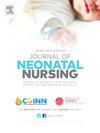一项关于加纳城市环境中产后母亲的决策过程和基于设施的新生儿危险信号护理障碍的定性研究
Q2 Nursing
引用次数: 0
摘要
生命最初的28天仍然是儿童生存最脆弱的时期。对各种新生儿疾病的识别不佳和寻求护理的延误导致新生儿死亡率和发病率高。新生儿死亡可以通过及时和适当的卫生保健来避免。该研究旨在探讨加纳城市地区新生儿危险迹象的产后母亲的决策过程和基于设施的护理障碍。方法采用定性方法进行探索性设计。采用有目的抽样方法,选取15名参与者。使用半结构化访谈格式的面对面访谈用于数据收集。采用专题分析法对数据进行分析。研究结果表明,通过与重要他人的有效沟通做出的决策以及社区设施中基本资源的缺乏影响了新生儿危险体征的求医。结论本研究建议有针对性的教育干预措施和政策,旨在改善资源的可及性,以显著提高妇幼保健成果。本文章由计算机程序翻译,如有差异,请以英文原文为准。
A qualitative study on post-natal mothers' decision making processes and barriers to facility-based care for newborn danger signs in urban setting in Ghana
Introduction
The initial 28 days of life continue to stand as the period of highest vulnerability for child survival. Poor identification of various newborn illnesses and delay in seeking care results in high neonatal mortality and morbidity. Newborn fatalities are avoidable through the pursuit of timely and appropriate healthcare. The study aimed at exploring post-natal mothers’ decision-making processes and barriers to facility-based care for newborn danger signs in Urban Region, Ghana.
Methods
An exploratory design using the qualitative approach was employed. Purposive sampling technique was used to select fifteen (15) participants. Face-to-face interviews using a semi-structured interview format was used for data collection. The thematic analysis approach was employed to analyze the data.
Findings
The study revealed that, decision making through effective communication with significant others and unavailability of essential resources in community facilities influenced health-seeking for newborn danger signs.
Conclusion
The study recommends targeted educational interventions and policies aimed at improving access to resources to significantly enhance maternal and child health outcomes.
求助全文
通过发布文献求助,成功后即可免费获取论文全文。
去求助
来源期刊

Journal of Neonatal Nursing
Nursing-Pediatrics
CiteScore
2.00
自引率
0.00%
发文量
143
期刊介绍:
Aims & Scope: This is the practical, bimonthly, research-based journal for all professionals concerned with the care of neonates and their families, both in hospital and the community. It aims to support the development of the essential practice, management, education and health promotion skills required by these professionals. The JNN will provide a forum for the exchange of ideas and information between the range of professionals working in this field; promote cooperation between these professionals; facilitate partnership care with families; provide information and informed opinion; promote innovation and change in the care of neonates and their families; and provide an education resource for this important rapidly developing field.
 求助内容:
求助内容: 应助结果提醒方式:
应助结果提醒方式:


